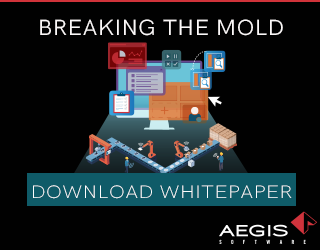Purchasing Managers Index (PMI) in Mexico Above 50.0 for the first time in 31 months
Supply chain woes underpin unprecedented rise in backlogs and near-record increase in input cost
The Mexican manufacturing industry was again negatively impacted by lingering problems in supply chains, a key factor leading to an unprecedented increase in outstanding business and the second-sharpest rise in input costs since the survey started in early-2011. Weakness was also seen on the demand side of the economy, with another decline in factory orders causing a further contraction in output. There was good news with regards to international trade, however, with monitored companies recording the fastest expansion in new export orders since February 2019. In turn, this supported back-to-back increases in employment.
Posting 50.6 in May, up from 49.3 in April, the headline S&P Global Mexico Manufacturing Purchasing Managers’ Index™ (PMI™) was above the critical 50.0 threshold for the first time in 31 months. The expansion reflected stronger job creation and a more pronounced deterioration in vendor performance. Indeed, average lead times lengthened to a greater extent than in April, with survey participants associating the deterioration with input shortages, port closures, issues with transportation and the war in Ukraine. Amid delivery delays and input shortages, outstanding business volumes among Mexican manufacturers continued to increase midway through the second quarter. Moreover, the rate of accumulation was steep and the fastest on record. There was a further upturn in input costs facing goods producers. The latest rise was sharp and the second-fastest in the survey history. According to panellists, global inflation, price list hikes among suppliers, raw material scarcity and Russia’s invasion of Ukraine all pushed up cost burdens. Some companies opted to pass on to their clients ongoing increases in cost burdens by lifting their selling prices. The overall rate of charge inflation was marked and outpaced its long-run average, but nevertheless eased from April. Fastest upturn in backlogs since survey started in 2011 Input costs rise at second-sharpest pace on record Total sales fall further, but exports expand strongly.
May data pointed to a further decline in factory orders in Mexico, taking the current sequence of contraction to 27 months. That said, the rate of reduction was marginal overall and the slowest over this period. Underlying data indicated that the domestic market was the key source of demand weakness, as goods producers noted back-to-back increases in new export orders. Moreover, the rate of improvement in international demand was solid and the strongest in 39 months. Manufacturing employment rose for the second straight month in May, and at the quickest pace since early-2019. Anecdotal evidence highlighted the hiring of temporary staff and trainees. Mexican manufacturers signalled another decline in production volumes, marking a 27-month sequence of contraction. However, the rate of reduction was mild relative to those seen over this period. Where a fall was reported, panellists mentioned weak sales, input shortages, acute price pressures and the Russia-Ukraine war. Although goods producers foresee output growth over the course of the coming 12 months, overall sentiment slipped from April’s recent high. Optimism was dampened by concerns regarding input availability, lingering issues in the automotive sector, subdued demand and mounting price pressures. Finally, price pressures and raw material scarcity restricted input buying in May whilst causing further declines in stocks of both raw materials and finished products. In all three cases, however, rates of contraction eased from April.










